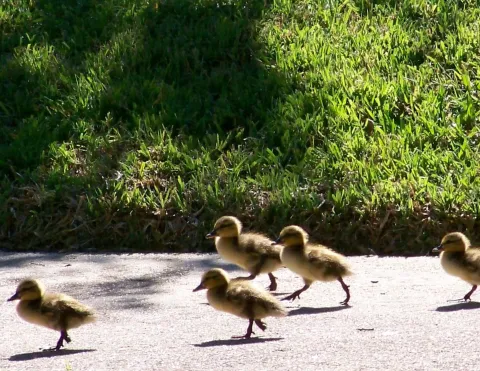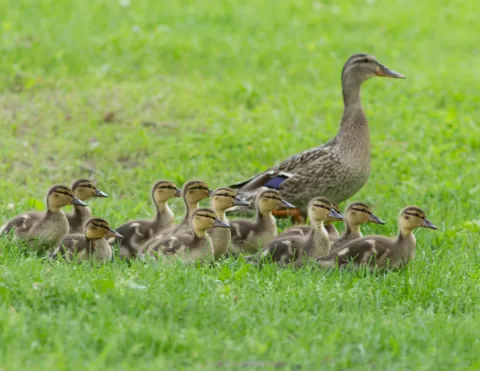Living with Wildlife: Urban Ducks and Ducklings
A duck bringing a group of ducklings across a busy street or through the heart of a densely populated neighborhood is a frequent and somewhat harrowing sight.
Many of the calls we receive during spring and summer are from people who want to know why they are there and how they can help the ducks.
Mallards will take their young to the water once they hatch. This occasionally involves traveling a risky path. It might entail crossing streets. It's crucial to let the mother take care of her own offspring even if it could be tempting to attempt to "save" the ducklings.
The mother frequently spooks and flies away during attempts to capture the young and take them to safer spots. Ducklings can be quite challenging to catch since they frequently scatter. Despite good intentions, interference usually makes a bad situation worse.
Ducklings can become separated from their mothers. If the mother is believed to be nearby, it is best to leave the duckling alone. It will peep and alert the mother to its whereabouts.
If the mother has been spooked and left her ducklings behind, they can be gathered and placed into a cardboard box with the top open to the sky. She will usually circle back shortly to relocate her ducklings.
Contact us at 949-470-3045 if you're unsure if ducklings are orphaned. In areas served by Mission Viejo Animal Services, we will respond to and remove any injured, sick, or deceased duck.
How to discourage ducks from making a backyard area a nesting site:
- Cover swimming pools during the nesting season.
- Allow beach or pool balls to float on the surface of pools, ponds or fountains.
- Clear away foliage from around water sources to eliminate a protected nesting area.
- Enclose above-ground decks with skirting to eliminate a nesting site.


